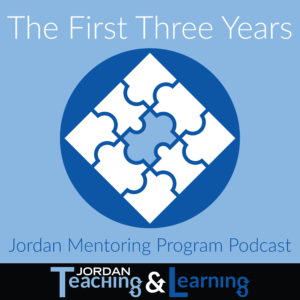You may have heard it said, "Where attention goes, behavior grows."
What does this mean though? The Tough Kid Book, by Rhode, Jensen, and Reavis, says: "If more teacher attention is given for inappropriate student behavior than for appropriate behavior, the inappropriate behavior will increase. With Tough Kids' teachers, this attention very often takes the form of excessive prompting, reminding, threatening, reprimanding, and verbal abuse, because these reactions seem to come naturally when teachers attempt 'pain control' of their own" (43).

Where is your attention going in your classroom? Are you feeding the negative actions of students and reinforcing the behaviors you don't want to see? What is your attention growing?
If you are feeling that some of these natural management tendencies (excessive prompting, reminding, threatening, reprimanding, and verbal abuse) are emerging in your teaching, maybe it is time to re-evaluate how you look at the Tough Kids' behavior. The Tough Kid Book has various strategies to try. You can access The Tough Kid Book in all JSD schools by checking with your school psychologist.
Strategies from The Tough Kid Book:
- Positive Reinforcement (45): occurs when something a student desires is presented after appropriate behavior has been exhibited. All students and adults need legitimate and appropriate reinforcement.
- Example: Calvin can earn up to ten points for completing his reading assignment correctly. The points can be exchanged for dinosaur stickers. Because Calvin enjoys the stickers he can earn, the accuracy of his reading assignments has increased.
- Motivation and Encouragement (48): motivating and encouraging desired performance is much the same in the classroom as it is in the business world.
- Step 1. Tell students what you want them to do (and make sure they understand it).
- Step 2. Tell them what will happen if they do what you want them to do
- Step 3. When students do what you want them to do, give them immediate positive feedback in ways that are directed and meaningful to them.
- Natural Positive Reinforcement (50): Natural (activities or things that students already find rewarding) forms of reinforcement are found in schools if you look for them. Some tips for selecting positive reinforcement:
- Select age-appropriate reinforcement.
- Use natural reinforcement whenever it is effective.
- Use reinforcement appropriate to the student's level of functioning.
- Make certain you have parental and administrative support for the reinforcement you plan to use.
- Avoid partial praise statements, such as "I'm glad you finished your work--finally!"
- Always make the most of opportunities to reinforce appropriate behavior.
- Be genuinely polite and courteous to Tough Kids at all times and demonstrate concern and interest toward them. Always stay calm.
- Do not confuse positive reinforcement or privileges with a student's basic rights.
For more tips and ideas, see:
Rhodes, Ginger, William R. Jenson, and H. Kenton Reavis. The Tough Kid Book. Eugene: Pacific Northwest Publishing, 2010.Opens in a new window


 Plan for classroom shakeup--CONSISTENCY IS THE KEY
Plan for classroom shakeup--CONSISTENCY IS THE KEY In this episode of The First Three Years, we focus in on creating change in our classrooms. We interview Melinda Boyack, a first grade teacher at Silver Crest Elementary, about her experience working with instructional coaches to improve her teaching and benefit her students. We also interview Amy Kinder, JSD Teaching and Learning's Math Consultant, about setting goals with an instructional coach.
In this episode of The First Three Years, we focus in on creating change in our classrooms. We interview Melinda Boyack, a first grade teacher at Silver Crest Elementary, about her experience working with instructional coaches to improve her teaching and benefit her students. We also interview Amy Kinder, JSD Teaching and Learning's Math Consultant, about setting goals with an instructional coach.

 Donate to and/or volunteer at the food bank
Donate to and/or volunteer at the food bank